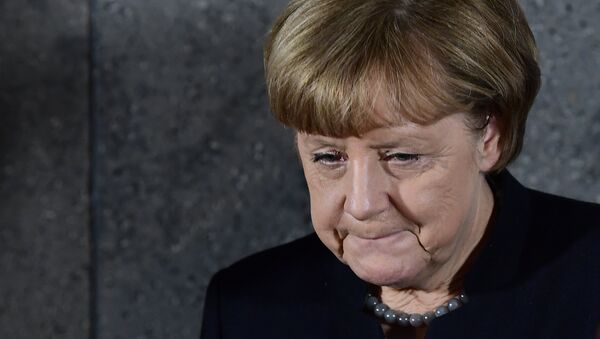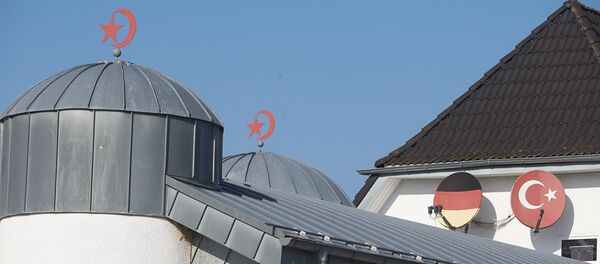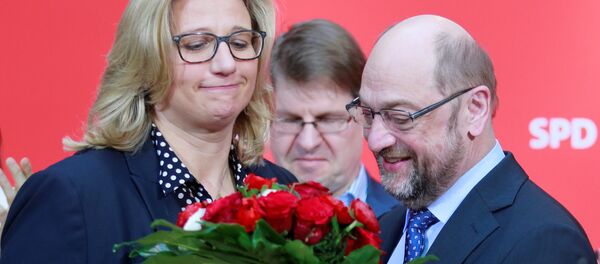Journalist Stefan Haderer examined articles and user comments from 90 news websites in 16 countries, and published the results of his investigation in Neo Presse.
He found that Merkel's policies were reported negatively and received negatively by the majority of newspapers and readers.
It was difficult to find positive coverage about Merkel. Most often, praise for Merkel was limited to a single news outlet, the British newspaper The Guardian.
Journalists and readers there gave Merkel's policies positive coverage and described her as the "leader of the free world," and "the most honest politician in Europe," for example.
Elsewhere, negative feedback about the German Chancellor generally outweighed positive. Although Merkel is ostensibly a center-right politician, criticism of her was just as likely to come from the right of the political spectrum as from the left.
For example, in both the German newspaper Die Welt and the Hungarian newspaper Magyar Hirlap, which are considered free market conservative papers, critical posts about Merkel outnumbered positive mentions by 16 to one.
Likewise, in the Romanian newspaper Adevarul, there were 13 times more critical statements than positive ones; in the Austrian newspaper Die Presse there was nine times more criticism.
Critics of Merkel often objected to her influence over European politics as a whole.
For instance, a reader of Adevarul described Merkel as "authoritarian." In Estonia's liberal Eesti Paeveleht, a critic of Merkel took aim at her "autocratic decisions."
In Finland's most popular newspaper, the Helsingin Sanomat, Merkel was called a "European dictator."
Criticism of Merkel was not confined to the Baltics and Eastern Europe. The Austrian newspaper Der Standard called Merkel a weak leader for failing to stand up to Turkish President Recep Tayyip Erdogan and criticized her close relationship with former US President Barack Obama. In Italy, a reader of the newspaper Il Giornale said that Merkel is a "vassal of the US."
The austere economic policies that Germany has imposed on other EU countries also invited criticism. For example, the French newspaper Le Figaro and the Spanish periodical El Pais blame the German government for betraying or selling out 'workers' rights'. Posters accused Merkel of dividing Europe into rich and poor and being responsible for the disintegration of the EU.
Some of the harshest criticism was due to Merkel's "open-door" migration policy. Newspapers across Europe criticized the decision to allow one million immigrants migrate across Europe to Germany in 2015.
Many publications linked recent terror attacks in Germany with Merkel's migration policy. They also blame the German government's foreign policy for wars and the resultant stream of migrants.
"If, like Germany, somebody follows their own interests and strengthens the economy by selling arms, war is what they get back," a reader of the Luxembourgish Tageblatt commented.
Given the overwhelming negatively sentiment about her leadership, it remains to be seen whether the German Chancellor can effectively unite Europe if she is re-elected for a fourth time, Haderer concluded.
"Is the Chancellor taking on too much, when she invokes European unity? At the moment, it seems so. Ultimately, representative judgments are not made by established chief editors, company bosses, party officials and MEPs. Broad sections of the population express their opinion on internet forums, social media and media portals and one thing is particularly clear: public opinion is not the same as published opinion," Haderer wrote.
On September 24, Germans will go to the polls in federal elections. According to a recent opinion poll carried out by Emnid on April 1, support for the SPD and the CDU/CSU bloc is neck-and-neck: currently 33 percent of voters say they will vote for each of them. The next most popular parties are the left-wing party Die Linke and the right-wing party Alternative for Germany, which are supported by eight percent of voters.
Never miss a story again — sign up to our Telegram channel and we'll keep you up to speed!





